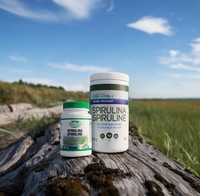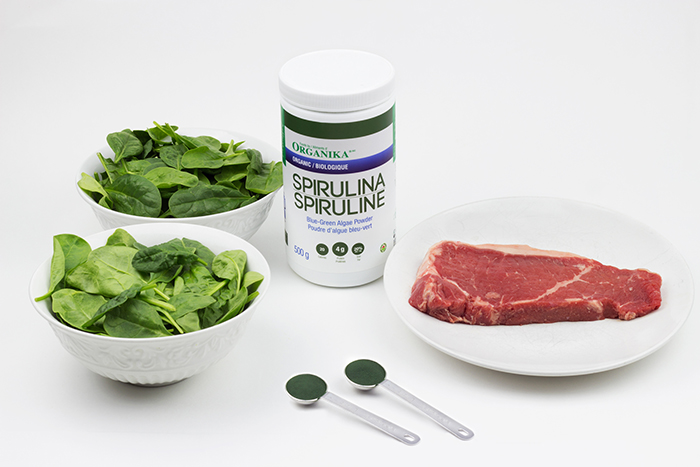Posted by Organika on 2016 Sep 15th
The Benefits of Spirulina + 3 Delicious ways to eat it

Reap the benefits of spirulina for better health
Spirulina is one of those great foods where you only need to eat a little bit for a whole lot of awesome. It’s a superfood, no doubt about it, and it’s been consumed for a seriously long time. So let’s get into the benefits of spirulina powder so you can start shamelessly using it in everything.
What is spirulina?
Spirulina is a blue-green algae that’s been growing on our planet for over 3.5 billion years. Historically, it was used by Aztec civilizations in Mexico to support them on long trips as a source of protein. It wasn’t until 1974 that spirulina began to get attention from more mainstream modern cultures across the globe, when it was named the “best food for the future” at the United Nations Food Conference1.
Today, spirulina is a superfood, and definitely for good reason. Spirulina is a great source of micronutrients, particularly high in iron, while also being rich in easily digestible plant-based protein.
If that’s not enough proof of spirulina’s superfood status, it’s also been noted by the United Nations as an effective and affordable food option to help deal with cases of malnutrition in impoverished regions2.
The benefits of spirulina powder

It’s high in protein
Spirulina is over 60% protein by weight (more than double the amount of red meat!)3. It contains 18 different amino acids, including all of the essential ones to build a complete protein. Protein is essential for muscle building and recovery, immunity, hormonal health and metabolism4. Easily digestible, spirulina is a great source of plant-based protein for vegetarians, vegans and meat eaters alike.
It’s rich in iron
Spirulina is rich in easily absorbable iron. Including spirulina in your diet can help to prevent iron deficiencies, while helping to increase iron levels in cases of iron-deficiency anemia. Iron helps to form red blood cells for better blood health, while supporting healthy energy levels throughout the body.
It fights free radicals
Spirulina is a powerful source of antioxidants that help stabilize free radicals throughout the body5. Left roaming, free radicals wreak havoc on your health contributing to inflammation, chronic illness and degenerative diseases. Increasing your intake of antioxidants from food sources like spirulina can help to protect against oxidative damage from free radicals.
It relieves allergy symptoms
Studies show that spirulina can help to relieve symptoms of allergic rhinitis, including nasal discharge, congestion, sneezing and itching6. It’s the perfect fix for allergy season, providing a natural alternative to over-the-counter anti-histamines. Anti-histamines often result in drowsiness as a side effect, whereas spirulina just leaves you feeling awesome.
How to consume spirulina
Spirulina can be found in tablets or powder form so fitting it into your diet is simple. If you’re choosing to try the powder, we’ll be honest, spirulina is strong in flavor and deep green in colour. But it’s definitely not a bad thing if you want to take your green smoothies to the next level. Spirulina can otherwise be pretty easily hidden in dips, sauces, soups, or juices (it’s really great in lemonade!).

